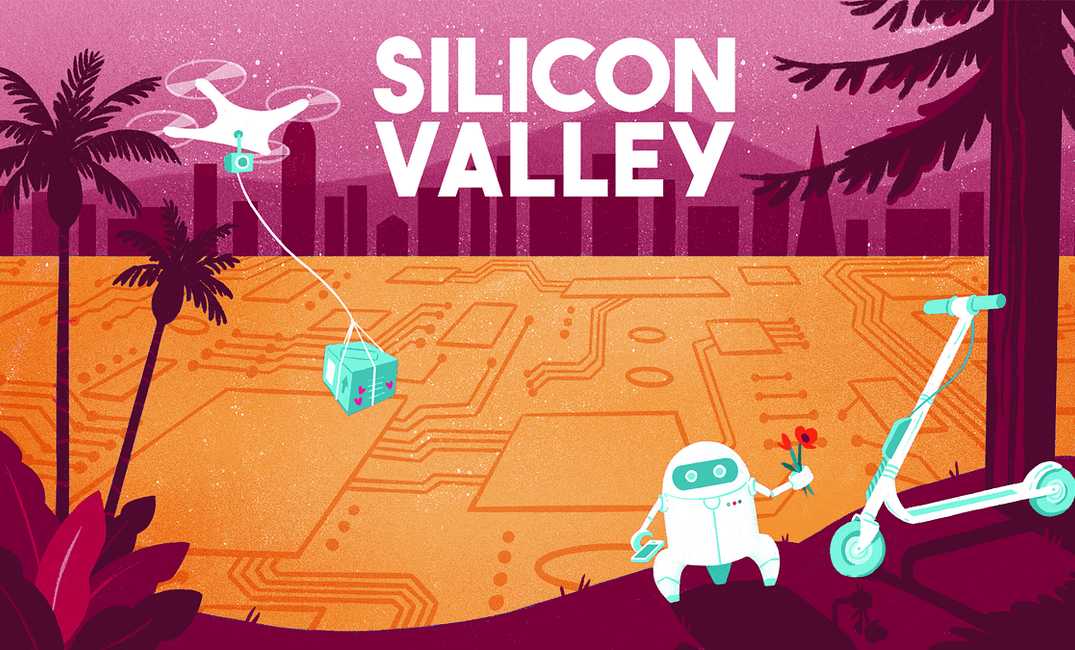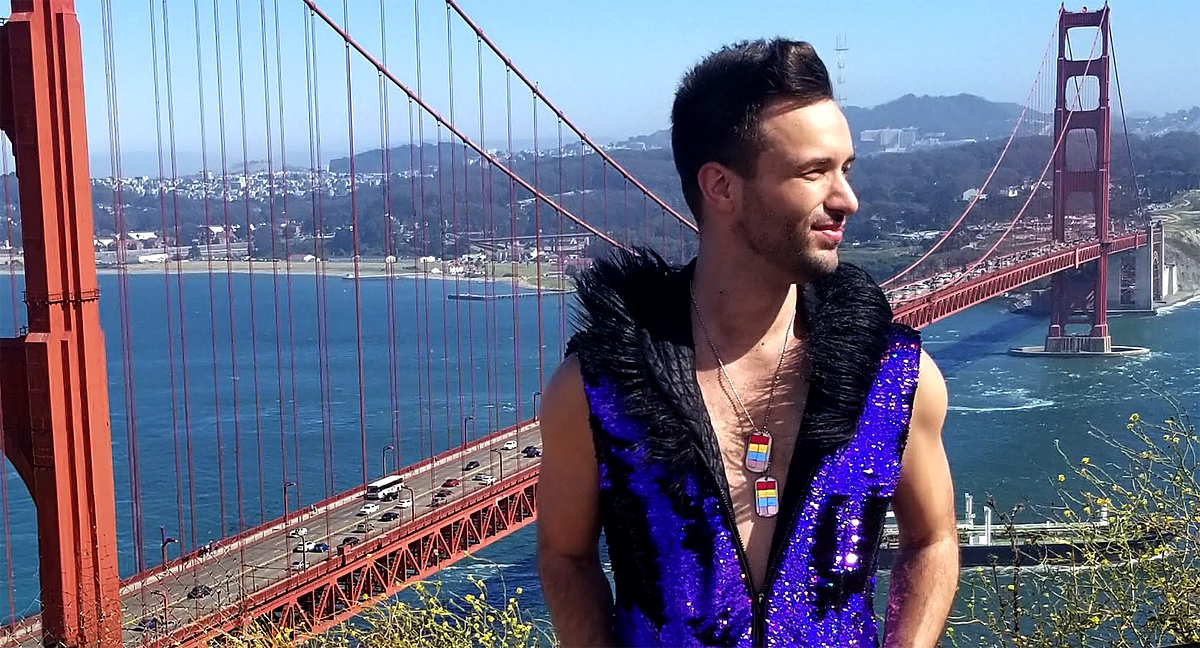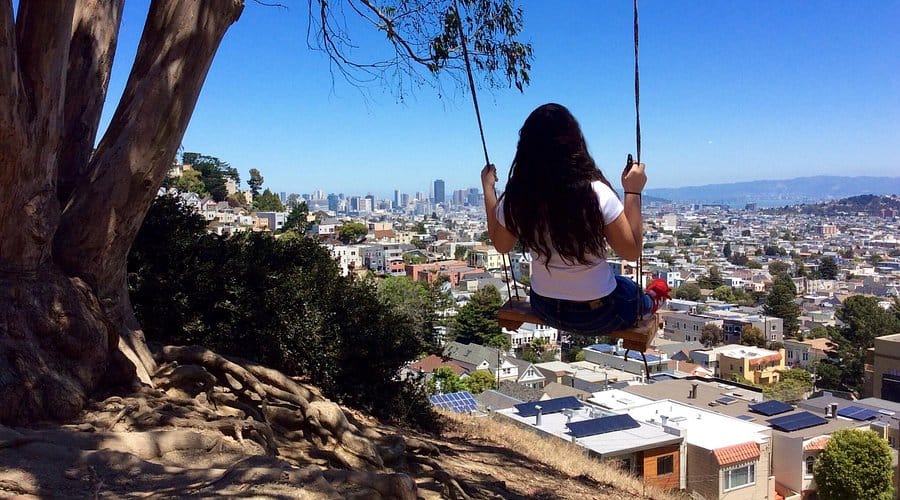The Weirdest Shit to Come Out of Silicon Valley
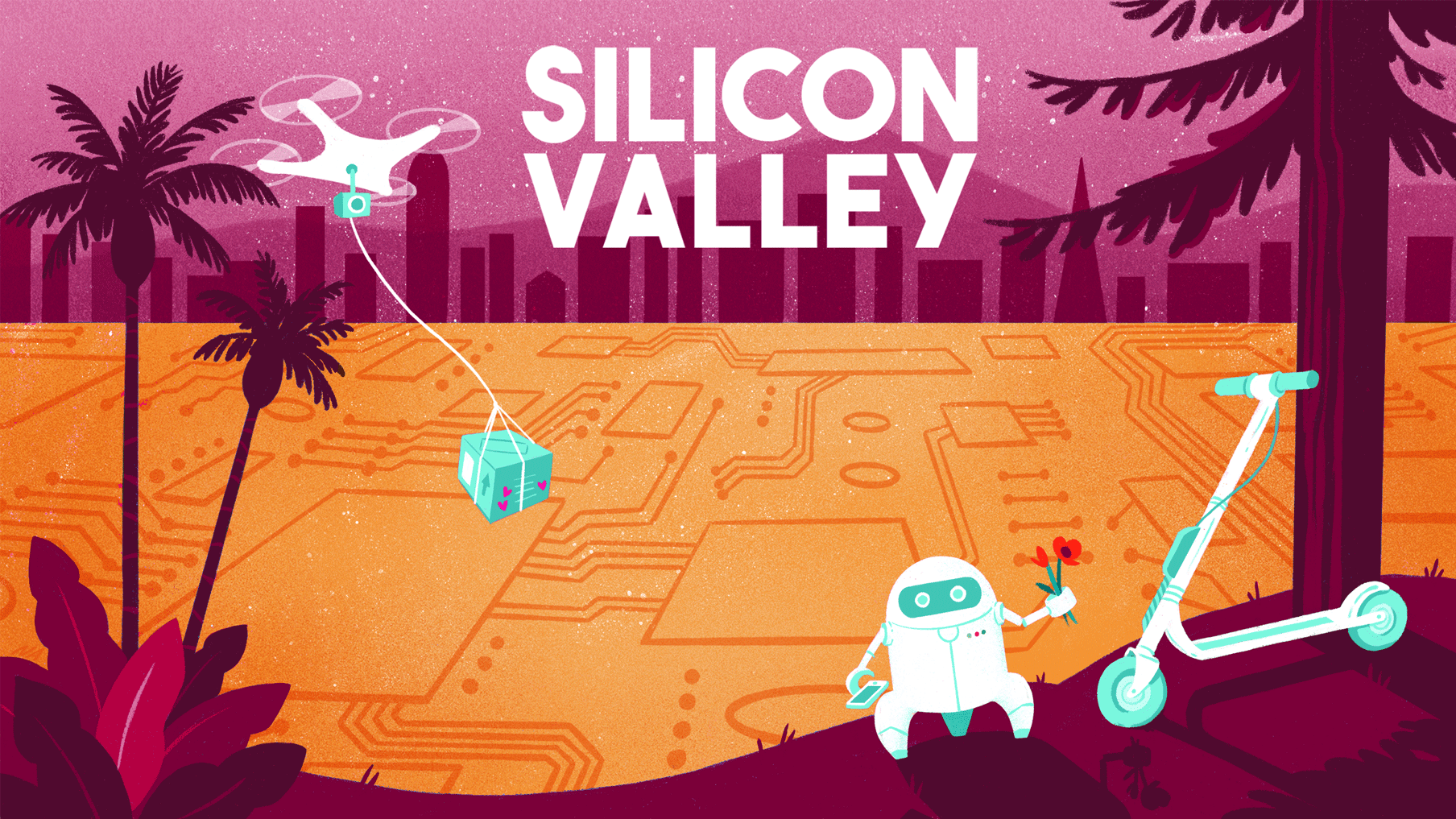
This month, New York opened its doors to the 117th edition of the Toy Fair, filling the Jacob K. Javits Center with wonders from across the world. Many of the featured toys had a tech angle, from VR Junior Chef games to ASMR kits for kids. #Disruption
Since it’s a toy-heavy tech month thanks to the Toy Fair, the February installment of Two Truths and a Lie, Silicon Valley Startup Edition is getting a toy-tastic makeover.
Which of the following startups is fake? (Scroll to the bottom for the answers.)
- One that sells programmable friendship bracelets that buzz when a kid’s BFF is near;
- One that develops laser tag games for your home with built-in electrical shocks;
- One that makes A.I.-connected toys to teach kids social skills.
Know of some ridic stuff happening in tech? Email, DM, or tweet me to include it in next month’s edition.
The Alexa-powered kitchen for kids

Generation Alpha — the post-Gen Z generation — is going to be very different from the rest of us. They’ll be digital-first natives, fluent one-handed texters, and perplexed by manual cars and rotary phones. Given this digital-everything ecosystem, you can see why toy company KidKraft, best known for their twee dollhouses and kiddy kitchen play sets, has decided that an A.I. play might be a good thing for their brand. And who better to distribute it than good old Amazon?
KidKraft’s new product, the Alexa 2-in-1 Kitchen and Market, is a $299 kitchen set equipped with 100 items of fake food and cookware, all tagged with RFID and Bluetooth so that Alexa can identify them and comment on the kiddos’ fake cooking and fake grocery store purchases. CNet senior editor Bridget Carey demonstrates the toy’s functionality in a hands-on video; when she places a hot dog on the scanner, Alexa chirps, “Hot dog. And maybe some antacid too, while you’re at it?” Now that’s some domesticated Terminator shit, amirite?
A nice touch is that you don’t have to keep repeating “Alexa” like a stuttering parrot because she reacts directly to the kit’s fake food and cookware, not the kid’s fake-swearing when they fake-chop their fingers when faux slicing and dicing. The $299 price point doesn’t include an Alexa (despite Amazon basically giving them away for a while), so you get to pay extra or this whole shebang becomes offline. That would be a lot of $$$ for some non-smart toys, so the Alexa purchase is a given.
Your T-shirt is now also your fitness coach
Connected accessories, like the Apple Watch and the FitBit, are a growing market. A natural evolution from connected devices is to take the tech off your wrist and just slather it all over your body, as part of your clothing, à la Google & Levi’s smart denim jacket collaboration.
But that was so 2019. Steven Webster, CEO of Asensei, a San Francisco-based connected apparel startup, wants to level up this category with a fashion line that doubles as a personal trainer. Available in March 2020, they’re selling $349 compression T-shirts and pants designed to maximize TRX workouts. Each garment is loaded with five motion capture sensors that react in response to your form — for example, buzzing to direct away from poor positioning. The garments also provide feedback on technique in rowing, yoga, and strength and conditioning. Asensei isn’t the only smart brand on the market, but the simplicity and ease of use of their designs is a great indicator of where this space is heading.
The fintech CEO with a Mountain Dew side gig
Behind every great startup business, you’re likely to find a shit-ton of caffeine/Adderall/cocaine. Everyone needs a little help in powering through those late nights and poring over spreadsheets, right? Early in my career, my vice was Diet Coke — and Diet Coke with cherry was da bomb. However, it’s recently come to light that Diet Mountain Dew is the preferred choice of Nima Ghamsari, CEO and founder of Blend, a mortgage fintech startup. He so loves the drink’s fizzy citrus flavor that he keeps a private fridge full of it in his office, plus a packed cooler in the company kitchen. He also never travels without da Dew and even named his company podcast after it: “The Morning Dew.” Even stranger, Blend has an employee award, “The Golden Dews,” and winners receive a spray-painted gold Mountain Dew can.
PepsiCo noticed Ghamsari’s frequent praise and photo ops with their product in interviews with Valley bigwigs Reid Hoffman and more, can in hand, and they decided to treat him to more. PepsiCo’s care packages include T-shirts, key rings, and limited edition products. At Christmas, PepsiCo gifted him with a Mountain Dew Body Wash Blast, which apparently is a thing. “Did you hear that Diet Mountain Dew is sponsoring me?” he told bankers during a company reception, qualifying that there was no money in it for him — just the privilege of being a brand ambassador. “They don’t pay me. I’d be willing to pay them,” he reportedly said. Sure, his company’s raised more than $300 million with clients including Wells Fargo and US Bank, but you’re never too old or too rich for a freebie.
The toy Tesla Cybertruck comes with a cracked window decal
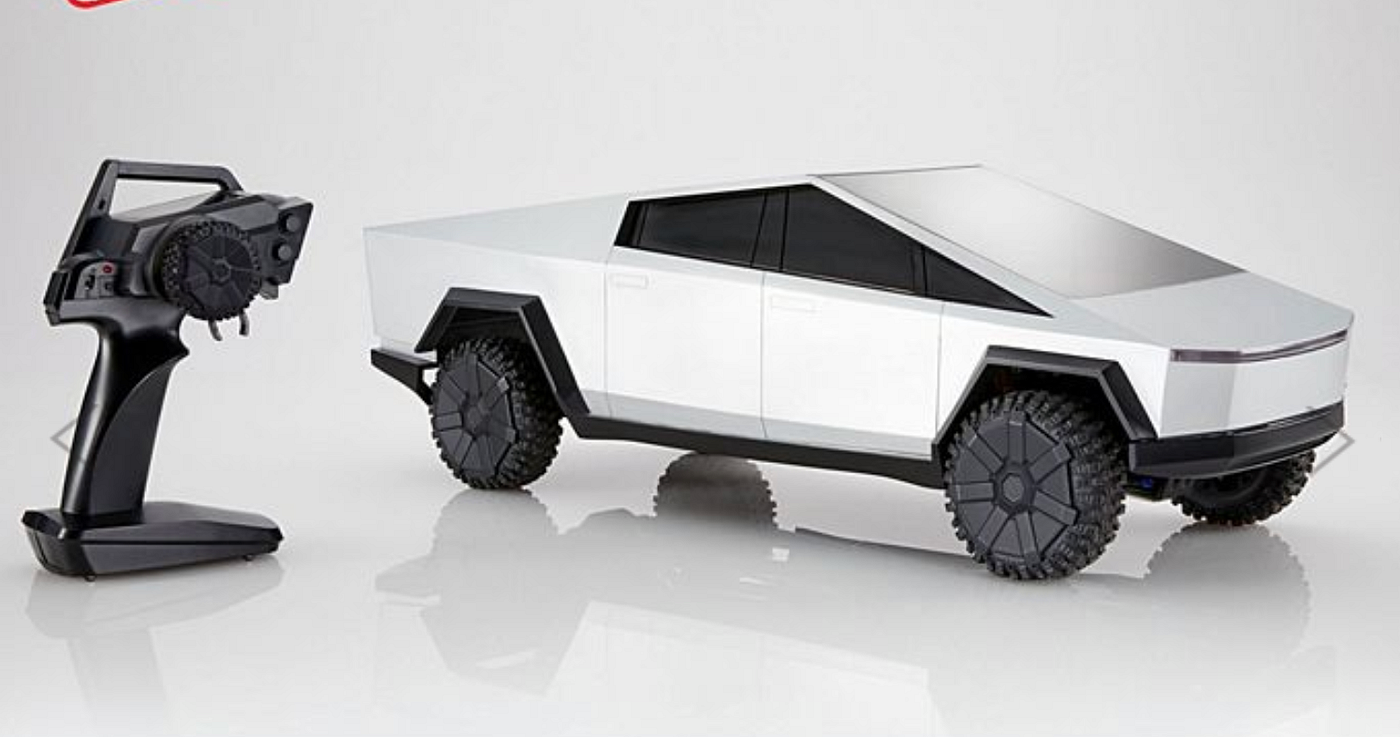
I’m admittedly a huge Elon Musk fangirl, but even I couldn’t look away during the deliciously awkward moment during his Tesla Cybertruck presentation when his “unbreakable” windows shattered after he threw a medicine ball at them during a demonstration of their strength. The first window shattered on the first throw, and when he made a second attempt on a different window, that one also shattered. For the rest of the presentation, Musk kept stopping to look at the broken windows behind him, with an expression of perplexed bewilderment on his face.
Those trucks don’t ship till late 2021, but Hot Wheels just announced they’re taking preorders for two remote-control kid-sized Cybertrucks, available in December. The larger model includes a “reusable cracked window vinyl sticker.” That is real, not a joke.
Key features include: Reusable cracked window vinyl sticker.
Ouch. But also: awesome. They wouldn’t be able to sell this without the go-ahead from Musk, who at least is cool with laughing at himself after huge public humiliation across the entire interwebs.
Liquid Death lives on: The bro drink that won’t die
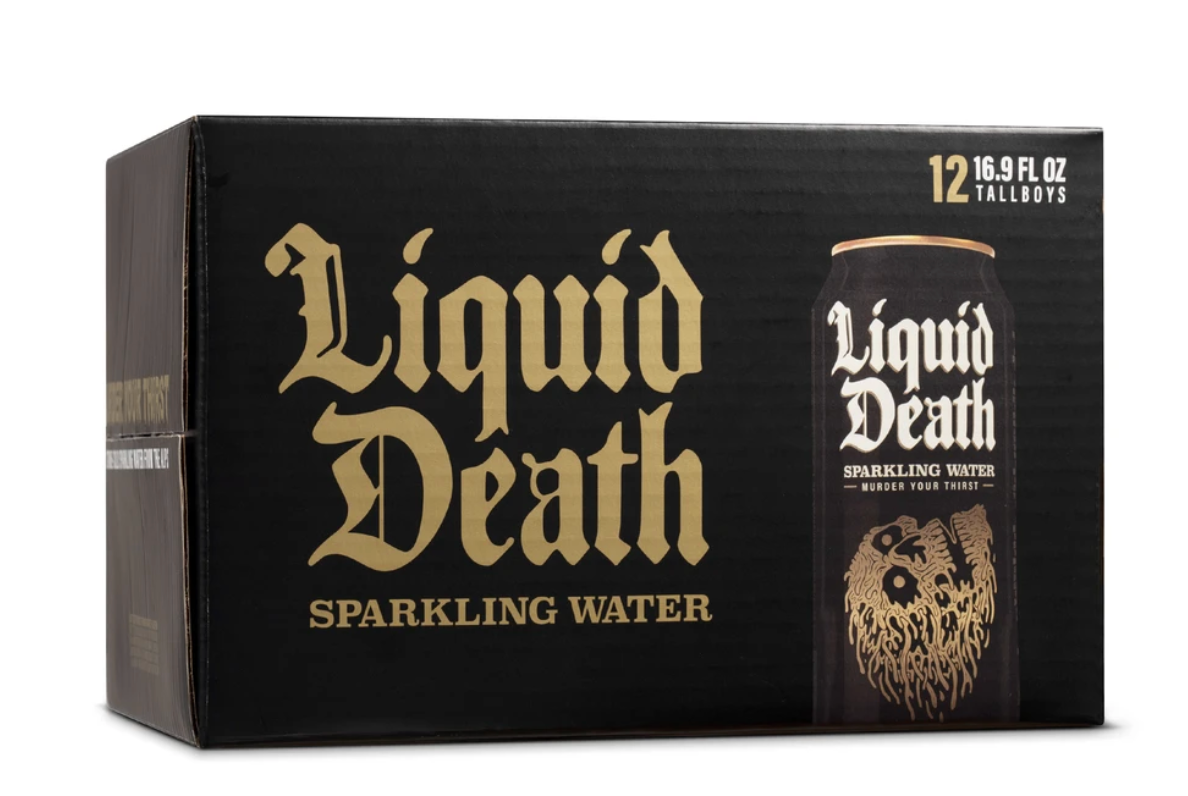
Way back in May 2019, in an early installment of this column, I wrote about Liquid Death, the drink. Quick recap: Back then, they sold canned water in a tallboy can with cutesy branding. A 12-pack cost $19. I thought this product would burn brightly and fade away, a novelty that would capture attention for a hot minute before going the way of Breatharianism and Keurig tortillas.
But I didn’t account for the clique-like culture of the company’s demographic or the deep pockets of their friends… In February they announced they’d raised $9 million in Series A funding, bringing their total investment to around $11.25 million. They’re bringing a new product to play here: sparkling canned water. In a tallboy can. With their “so edgy” packaging. Again, priced at $18.99 for a 12-pack. Plus shipping.
“Consumers aren’t stupid,” CEO Mike Cessario told TechCrunch, explaining that his appeal is not superior water but that customers feel an affinity with his branding.
Coming to a Whole Foods (also known as Amazon Food Store) near you. I hate people.
Former Secret CEO launches a loneliness app
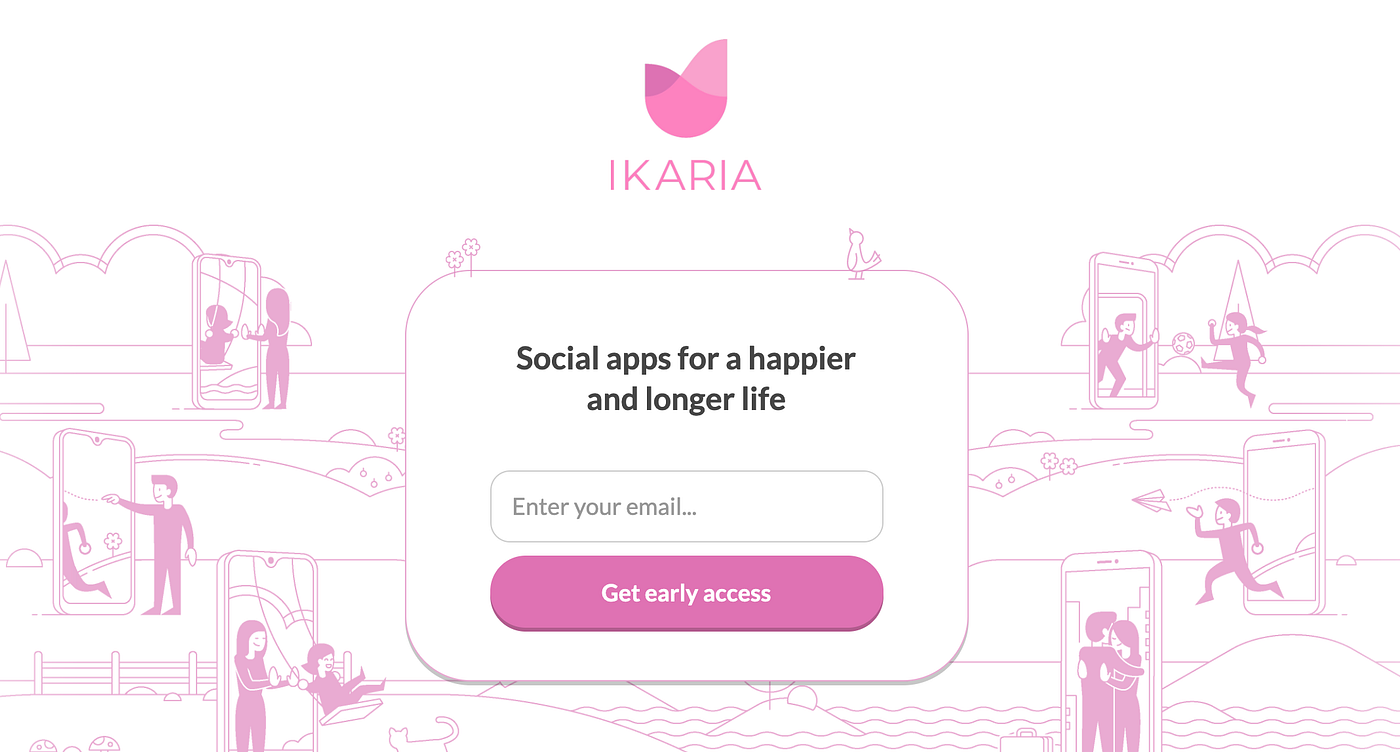
Secret, an anonymous confession app, shuttered two years after its launch in 2013 amid controversies over bullying, racism, and rumor-mongering. Now co-founder Chrys Bader-Wechseler is back with a new app that hopes to address the loneliness of the human condition. Called Ikaria, after the Greek island — “where one third of the population lives past the age of 90, due in part to strong family and social ties between the Ikarian people,” according to a company blog post — the app is designed to work as a combination chat, group bonding, and mental health platform, Bader-Wechseler told TechCrunch.
Details are pretty vague, but Ikaria’s focus seems to be on likes, not followers, with an emphasis on keeping it ad-free and building in high levels of data privacy. Basically, a sorta safe space online, with occasional “guided experiences” — meditation and mindfulness, and so on, likely led by practitioners. The “loneliness business” has been on the up lately, with a number of apps tapping into the sense of ennui and isolation that many face today, but whether an app created by the former Secret CEO — and all Secret’s sordid associations — is enticing to people is still up in the air.
Answers to “Two Truths and a Lie”: The A.I.-connected social skills toy is the fake one. JewelBots makes the connected friendship bracelets and many companies have sold “shocking” laser tag games for kids.



